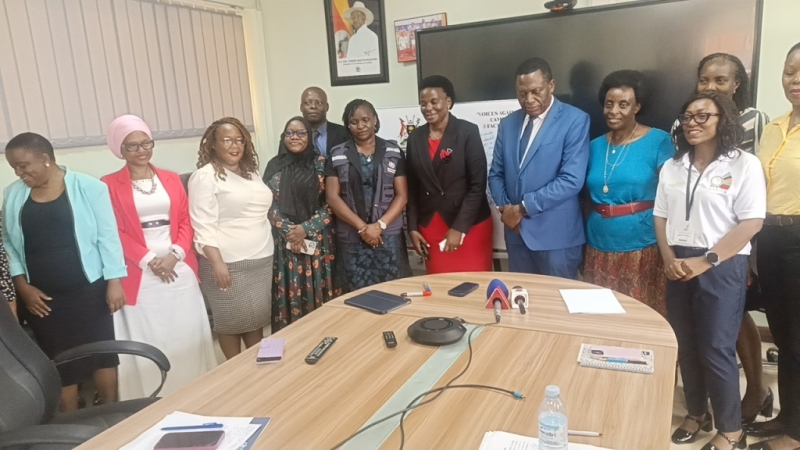Uganda has joined the rest of the world to mark World Sepsis Day 2025 with a passionate appeal from the Ministry of Health for collective action against the life-threatening condition described as a “silent killer.”
Speaking to journalists, on behalf of Health Minister Hon. Dr Jane Ruth Aceng, the Director General of Health Services at the Ministry of Health, Dr Charles Olaro, emphasised that sepsis remains one of the leading yet under-recognized causes of death in the country. He revealed that the condition claims more lives annually than HIV, malaria, and breast cancer combined, but continues to go unnoticed by the general public.
“Sepsis is a battle your body loses to germs. It may begin as something simple—like pneumonia, a urinary tract infection, or even a wound after childbirth or surgery. But without urgent treatment, it can spiral into organ failure and death within hours,” Dr Olaro warned.
The Ministry of Health highlighted that maternal and newborn sepsis is among the top killers in Ugandan hospitals. Thousands of women and babies die each year from infections that are preventable and treatable, particularly if detected early.
Experts also warned that the crisis is worsened by the growing problem of antimicrobial resistance (AMR), where common infections no longer respond to available antibiotics. Uganda loses an estimated 30,000 people annually due to drug-resistant infections linked to sepsis.
What Sepsis Looks Like
Often referred to as “blood poisoning,” sepsis occurs when the body’s defense system overreacts to an infection, attacking its own tissues and organs.
Typical signs in adults include:
- Persistent fever or chills
- Rapid breathing and heartbeat
- Confusion or disorientation
- Severe weakness or shivering
In newborns, red flags include refusal to breastfeed, abnormal body temperature, or sudden health deterioration.
Global Voices Against Sepsis
This year’s commemoration was held under the theme “Voices Against Sepsis,” bringing together stakeholders from government, health organizations, and civil society.
World Health Organization (WHO) representative Winnie Agwang described sepsis as a public health emergency that requires routine screening, proper infection control, and timely diagnosis.
“Sepsis is preventable and treatable when detected early. We call on all health workers to use available clinical tools and integrate sepsis screening into their everyday practice,” Agwang said.
Robinh Kaitsritimba, Executive Director of the Uganda National Consumers Organization, stressed the importance of community awareness:
“Prevention begins with information. Families and communities must know the danger signs, demand early treatment, and support hygiene, sanitation, and vaccination efforts.”
Dr. Priscilla Haguma of Walimu, a local health advocacy organization, highlighted Africa’s disproportionate burden. She noted that nearly 30 percent of global sepsis deaths occur on the continent, citing poor health infrastructure and limited diagnostic capacity as barriers.
The Ministry of Health pledged to:
- Integrate sepsis prevention and control into existing health programs.
- Roll out awareness campaigns targeting households and health workers.
- Mobilise political, cultural, and religious leaders to champion the fight against sepsis.
Dr Olaro made a direct appeal to Ugandan families:
“Watch over mothers after childbirth, newborns, and patients recovering from surgery. Those living with chronic conditions like diabetes, cancer, or HIV are also at higher risk. Complete prescribed treatments and seek medical help immediately when danger signs appear. Together, we can save lives.”
Globally, sepsis kills over 11 million people each year, many of them children and women in low- and middle-income countries. Health experts warn that without urgent investments in awareness, research, and stronger health systems, the condition threatens progress toward universal health coverage and the Sustainable Development Goals (SDGs).
As Uganda marks this year’s World Sepsis Day, the message is clear: early recognition saves lives. The Ministry of Health is urging every citizen to play their part—by practicing good hygiene, completing treatments, and seeking timely medical care.













